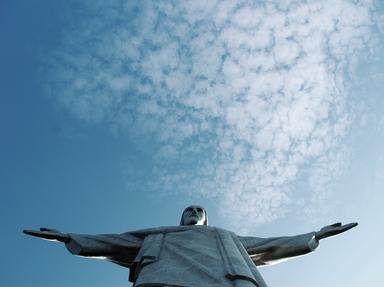Quiz Answer Key and Fun Facts
1. (1498) Sighted by Columbus, who described it a "Terrestrial Paradise".
2. (1532) Atahualpa was captured by Spanish forces at the Battle of Cajamarca.
3. (1578) Sir Francis Drake raided the port of Valparaiso.
4. (1726) Its capital city was founded by the Spanish, on the north shore of the Rio de la Plata.
5. (1810) As New Granada, declared independence on 20 July 1810.
6. (1814) "Dictator for life" Jose Gaspar Rodriguez de Francia ruled here, 1814-1840.
7. (1822) Declared independence from Portugal.
8. (1856) Swiss immigrants, and other Europeans, founded the settlement of Esperanza.
9. (1875) President Gabriel Garcia Moreno was assassinated.
10. (1904) Lost access to the sea under terms of a peace treaty.
Source: Author
spanishliz
This quiz was reviewed by FunTrivia editor
bloomsby before going online.
Any errors found in FunTrivia content are routinely corrected through our feedback system.

